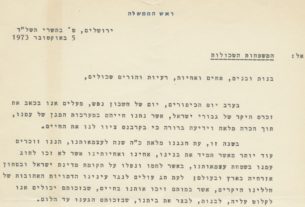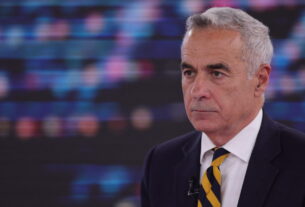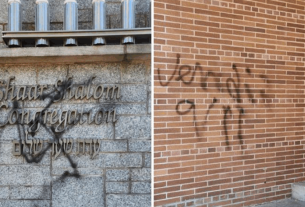(JR) — A public university in Switzerland is looking for its next Jewish studies professor, and one requirement on the job posting has drawn scrutiny from local Jews: all applicants to the position must be Catholic.
The opening, for a professor of Judaic studies and theology, is currently listed at the Faculty of Theology at the University of Lucerne, an hour south of Zurich.
Even though the university is public, that academic department is officially affiliated with the Catholic Church — which prohibits non-Catholic professors from teaching “doctrinal” courses such as philosophy, liturgy, scripture, Catholic theology and fundamental theology. That includes teaching about non-Christian religions such as Judaism. Non-Catholic professors may be invited as guest lecturers or visiting professors.
The Jewish studies and theology professor would be responsible for teaching and research related to Judaic studies, as well as leading the Institute for Jewish-Christian Research, according to the job posting.
Alfred Bodenheimer, who worked at the University of Lucerne from 1997 to 2003 in a Jewish teaching and research position, said the prohibition of non-Catholics hampered his career there.
“It seems to be the case that it simply doesn’t fit into our times anymore — that you say someone who teaches Jewish studies cannot be anyone else but a Catholic,” Bodenheimer, who now teaches at the University of Basel, told the Jewish Telegraphic Agency.
“I really saw that as a Jewish person at this university, I would always be something like a subaltern, with no chance to have more possibilities, influence and so on,” he added. “I became aware of the fact that this whole situation was very asymmetric, that I as a Jew would always be not on the same stage as my Catholic boss.”
Like Lucerne, the University of Basel is a public university. But its theology department is Protestant, rather than affiliated with the Catholic Church. In total, Switzerland has 12 public universities, at least two of which have Catholic Church-affiliated theology departments.
Margit Wasmaier-Sailer, the dean of Lucerne’s Faculty of Theology, told the Swiss publication Zentral Plus that the application included the Catholic Church’s restrictions “for reasons of fairness and transparency.” But though the Theology Faculty effectively bars Jews from being hired to its Jewish studies position, she said the department is committed to teaching the subject.
“The Theological Faculty of the University of Lucerne is the only Catholic Theological Faculty in the German-speaking world where Jewish Studies is part of the compulsory curriculum of theology studies,” Wasmaier-Sailer told Swiss-Jewish publication Tachles. She did not respond to JR’s request for comment.
Jonathan Kreutner, general secretary of the Swiss Federation of Jewish Communities, said he is concerned about the requirement and that it is “really not understandable at this time.” Kreutner said his group is set to discuss the issue with the university and has already spoken with the area’s local bishop. He said that both seem “quite open” to finding a solution.
“On the one hand, it’s clear that the Theological Faculty have some rules how to set up their posts,” Kreutner told JR. “This is one thing. On the other hand, of course, we think it’s a little bit questionable why they are so strict.”
He added, “If you’re talking about Jewish studies, why close this for Jewish applicants?”
Bodenheimer said that he wouldn’t be against a Catholic professor being hired to teach Jewish studies but feels Jews and others should be eligible.
“There are excellent experts of Judaic studies who are Catholics,” he said. “I happen to know people like this and I’m not against at all that in the end a Catholic will have the job. But open it up. Let people simply show what they can and then decide.”
A solution, he said, would be for Jewish studies to be moved to the department of philosophy, where the Catholic requirement would not apply. He said convincing the Catholic Church to give up the discipline may be “a little complicated administratively” but that the millennia-old institution should be able to adapt.
“The Catholic Church lives in the 21st century,” Bodenheimer said. “They also have to be in some way able to adjust themselves to a world that has changed dramatically.”




